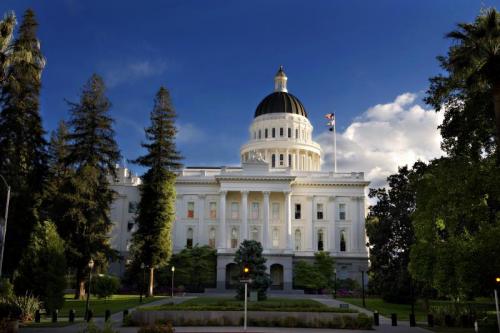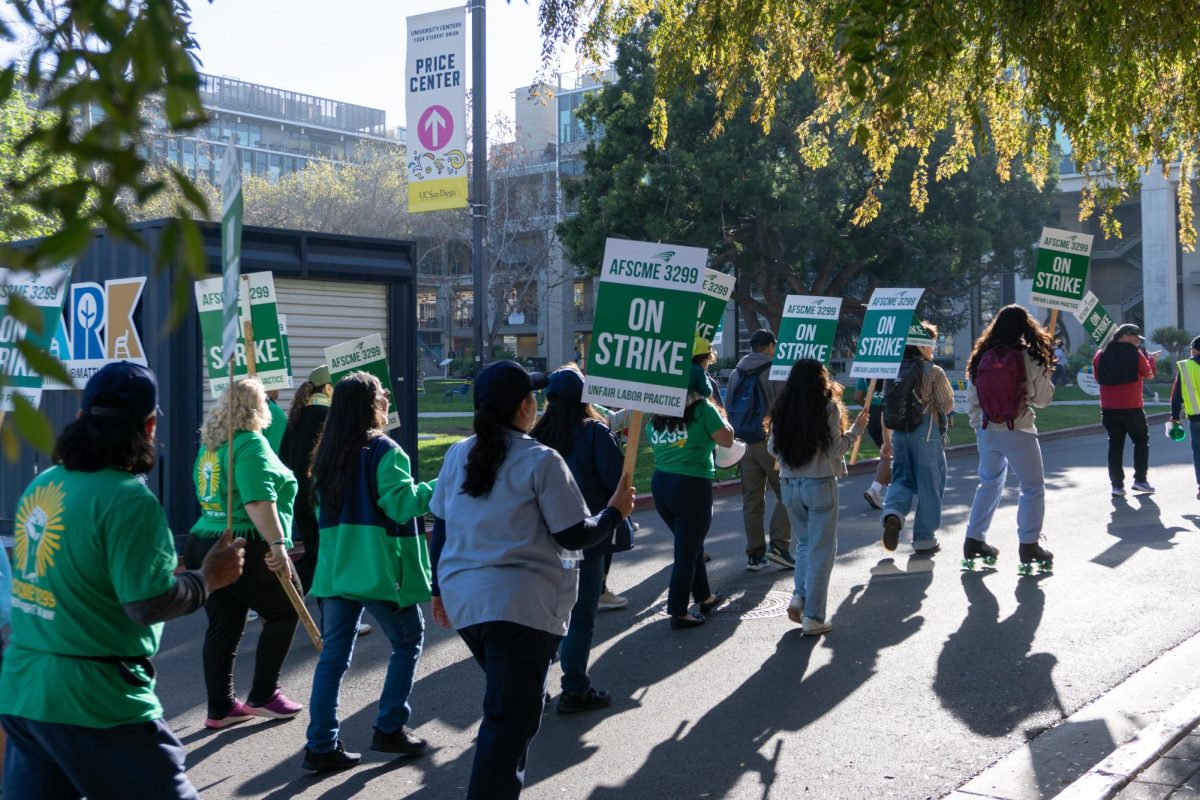The California State Senate passed SB 24, “The College Student Right to Access Act,” on May 20. SB 24 — if ultimately signed into law — would mandate that all on-campus student health centers in the California State University and the University of California system offer medication abortion, also known as the “abortion pill” by Jan. 1, 2023. Medication abortion is not currently provided at UCSD’s SHC.
Medication abortion refers to the usage of two medicines, mifepristone and misoprostol, to end a pregnancy up until 10 weeks. Mifepristone blocks the hormone progresterone and thereby stopping the growth of the pregnancy. Misoprostol, taken up to 24 hours after Mifepristone, causes cramping and bleeding to clear the uterus. According to Planned Parenthood, medication abortion has an effectiveness rate above 90 percent.
The bill would also authorize a newly-created College Student Health Center Sexual and Reproductive Health Preparation Fund to provide $200,000 grants to each university’s SHC. The grant money would be appropriated to cover the expenses of medication abortion readiness, including employee training, facility upgrades, and the maintenance of 24-hour medical support hotline for students who use medication abortion from their SHC.
The bill, sponsored by Senator Connie Leyva, D – Chino, passed a full Senate floor vote along party lines with 28 Democrats in support and 10 Republicans against.
The bill’s passage in the State Senate comes at a time when several states, including Alabama and Ohio, have passed legislation restricting abortion in the first trimester. Other states are currently working to pass similar “fetal heartbeat” bills.
In 2017, Leyva sponsored SB 320, a bill similar to this term’s SB 24. Then-Governor Jerry Brown vetoed the bill last year on the basis that “the services required by [the] bill are widely available off-campus” and “[SB 320] is not necessary.”
If SB 24 makes it through the legislative process in the State Assembly, the bill would then go to Governor Gavin Newsom’s desk. Newsom was a supporter of SB 320, although he has not taken a formal position on SB 24.
In a press release, Leyva said that “student health centers at many public universities in California already offer reproductive health services.” She added that “the lack of access to comprehensive and accessible reproductive care can hinder the well-being and academic success of college students,” an issue which “disproportionately [impacts] students of color and low-income students.”
Leyva also noted that SB 24 would be symbolic of the Golden State’s support for abortion rights and expanded access.
“California continues to lead the nation by reaffirming the constitutional right to access abortion care without delay, including at student health centers on public university campuses,” Leyva said. “All Californians — including college students — should have access to the full range of choices for reproductive health care services so that they can plan their futures and achieve their personal and professional goals.”
SB 24 was endorsed by numerous groups including ACCESS Women’s Health Justice, ACLU of California, California Latinas for Reproductive Justice, and NARAL Pro-Choice California. The UC Student Association and Cal State Student Association, which together represent nearly 700,000 students, has endorsed the bill.
Senator Toni Atkins co-sponsored and voted for the legislation. Assemblyman Todd Gloria is expected to support the bill. UC San Diego is included in both of these San Diego lawmakers’ districts.
SB 24 is opposed by the California Republican Party and pro-life activist groups. The Bishop of Sacramento, Jaime Soto, released a video statement last month urging Catholics to oppose SB 24.
“The state of California should have no role in encouraging or funding abortions at our public universities,” Soto said. “The womb should not become a tomb for any child anywhere in our state. Women and children deserve better.”
UC San Diego Health declined to comment, directing all inquiries to the UC Office of the President since the proposed legislation would affect all UC campuses.
In an email to the UCSD Guardian, the UCOP Media and Communications Strategist Sarah McBride said that UCOP has not taken a position on SB 24. McBride reaffirmed that UCOP “[believes] students should have access to affordable and convenient reproductive health care of their choosing.”
“UC student health centers will continue to provide students with access to comprehensive reproductive health services, including referrals to nearby facilities for abortion services when requested,” McBride said. “UC will continue to work with policymakers to ensure accessible, quality health care for our students.”
At the time of publication of this article, SB 24 awaits committee assignment in the State Assembly. All California public universities, including UCSD, would provide medication abortion through their SHC by Jan. 1, 2023 if the proposed legislation becomes law.
Photo courtesy of the California State Assembly.














Nancy Westberg • Jul 11, 2019 at 12:07 am
Hi, you have given very useful information about the abortion process with the warning signs. keep sharing.
Lumi • Aug 4, 2019 at 10:25 pm
ABSTRACT: The American College of Pediatricians, being truly dedicated to all children, affirms the health and lives of all pediatric patients equally. Many medical and mental health organizations profess to be dedicated to the health of all children, yet some espouse neutrality on the issue of induced abortion and recommend that pregnant adolescent women consider “all pregnancy options.” The American College of Pediatricians finds this position be be scientifically untenable and wholly unethical.
“As the College reiterates its opposition to the termination of an in utero human life by any means, the College also calls attention to the morbidity and mortality induced abortion presents for both adolescent women and their children. Abortion-associated morbidities include the increased risk of subsequent substance abuse, anxiety, depression, breast cancer, and premature births (which endangers the health of the newborn).6,7,8,9,10,11,12,13,14 While maternal deaths due to abortion are rarely reported,15 recent studies document a greater incidence of both abortion-associated “natural cause” mortality and abortion-associated violent deaths (including suicides, homicides and accidents) when compared with women who deliver at full term.16,17,18”
Do your students know this? And do they realize that their decision making faculties (the prefrontal cortex) is not even fully developed until somewhere between age 25 and 30? We are horrified at mass killings, but how is it “no big deal” to murder a baby?